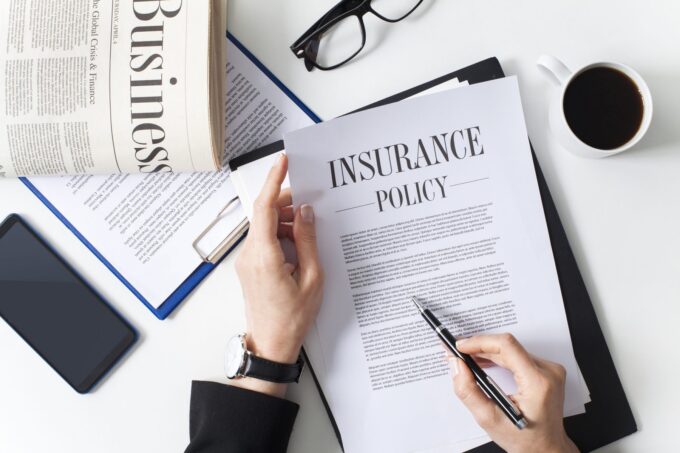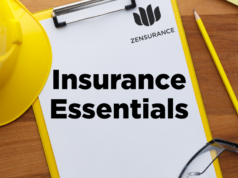Construction projects are fraught with dangers of many kinds, including theft, defacement, project stalling, and natural calamities like fire and storms. It is your duty as a contractor, manager, or owner to make sure the appropriate insurance coverages are in place to protect you and your staff.
Inherent risks that come along with construction projects are dynamic and substantial. In a project with multiple contractors and stakeholders involved, it is crucial to establish who is responsible for each type of insurance coverage in order to protect the involved entities and the work getting done.
A report published by the National Fire Protection states that buildings under construction are more prone to fire hazards as compared to finished buildings. Every year fire causes damages amounting to over $370 million in the United States.
It is essential to have sufficient coverage in place in order to reduce losses when such disasters take place. Thankfully, builder’s risk insurance can help in such grave circumstances.
This article shall highlight important points about the builder’s risk insurance, its applicability, and how you can find a policy that is best suited to your needs.
What Is Builder’s Risk Insurance?

Builders Risk Insurance, also known as Course of Construction Insurance, is a specialized insurance policy designed to protect construction projects during the course of their construction or renovation.
This policy covers the value of the structure under construction, the supplies and the raw materials, and the contractor’s stake in the types of equipment used for construction. The coverage will last until the owner has approved the project’s completion.
Builders’ risk insurance can also assist in covering the costs of project delays and missed income caused by property damages.
The market value of the Commercial Construction Insurance industry in the US in 2022 was around $1.3 billion.
Things That The Policy Covers

A builder’s risk insurance can assist you with the costs of renovations if any property on the construction site gets damaged because of one of the following reasons.
Property damage: Protection against structural or other damage brought on by covered risks, including fire, lightning, windstorms, or vandalism.
Theft and Vandalism: Protection against losses brought on by the theft of tools or building supplies, as well as vandalism to the project site.
Equipment breakdown: Insurance pays for the expense of fixing or replacing construction-related machinery and equipment that experiences an unexpected mechanical failure.
Soft Costs: Compensation for additional costs incurred as a result of project delays brought on by covered losses, like finance fees, design modifications, or additional construction time.
Insurance companies frequently include premium options that are more costly but can expand your policy’s coverage.
Provident Protection Plus, an insurance agency in New Jersey, states that damages that are caused by events like earthquakes and floods are generally not covered in the policy unless their respective coverages are added to the policy.
Exclusions and Limitations

Common coverage exclusions also include terrorist acts, employee fraud, shoddy construction, and defective design. These are explained below:
Earthquakes and Floods: Most policies exclude coverage for damages caused by earthquakes and floods. Separate insurance coverage may be necessary to protect against these perils.
Acts of Terrorism: Some policies may exclude coverage for damages resulting from acts of terrorism. Additional coverage can be obtained if needed.
Employee Theft: Theft committed by employees is typically excluded from Builders Risk Insurance. Employers may consider separate coverage for employee dishonesty.
Professional Liability: Builders Risk Insurance does not cover professional errors or omissions by architects, engineers, or other professionals involved in the project. Professional liability insurance is required for such risks.
Implementation
Normally, the policy is put into action from the day the contract gets signed for the project. The tenure of the policy ends when the project ends. Different builder risk insurance policies can have different indicators to signify the start and the end of the coverage.
Anyone with a financial stake in the construction project, such as the property owner and contractors, needs the builder’s risk insurance. Insuring against builders’ risk is only a small part of your entire risk management.
Effective loss control procedures must be put in place on the construction site if expensive events are to be avoided and claim expenses are to be minimized.
What Is Best For You?
Buying a builder’s risk insurance policy is not too different from buying any other policy, albeit with a few subtle differences. Here is a list of the important points you should be wary of when buying a builder’s risk insurance policy.
Your Coverage Needs
Jot down all the details about your project and highlight the potential risk factors. Decide your coverage needs based on your exhaustive risk assessment.
To minimize financial losses, your project should also have special types of equipment, if any, insured.
You cannot overlook the threats posed by natural disasters. This can put you, the project owner, at immense financial risk.
Your Tenure Estimation
You will usually need insurance once the final papers get signed. You can find details regarding the beginning of your coverage in your insurance policy. In normal cases, the insurance term also expires with the completion of the project.
The insurance policy should specify the situations under which the coverage will expire.
Understanding Policy Exclusions

Repair and rectification expenditures are not generally covered by a builder’s risk coverage. However, an agreement with a subsequent loss clause may pay for damage and poor workmanship.
Exclusionary restrictions vary from policy to policy, so you need to read the policy carefully to prevent unpleasant surprises.
Conclusion
We need to do what we can do and leave the rest to the play of time. Putting up protection frontiers like the builder’s risk insurance plans provides you with the best possible means to carry on with your project in peace.
Time will add new provisions to the different policies to stay in tune with the new postulates that come into existence in various facets of the construction world. But, till then, stay abreast with the details that concern your project insurance and pave the way for your contemporaries to put their best foot forward.










